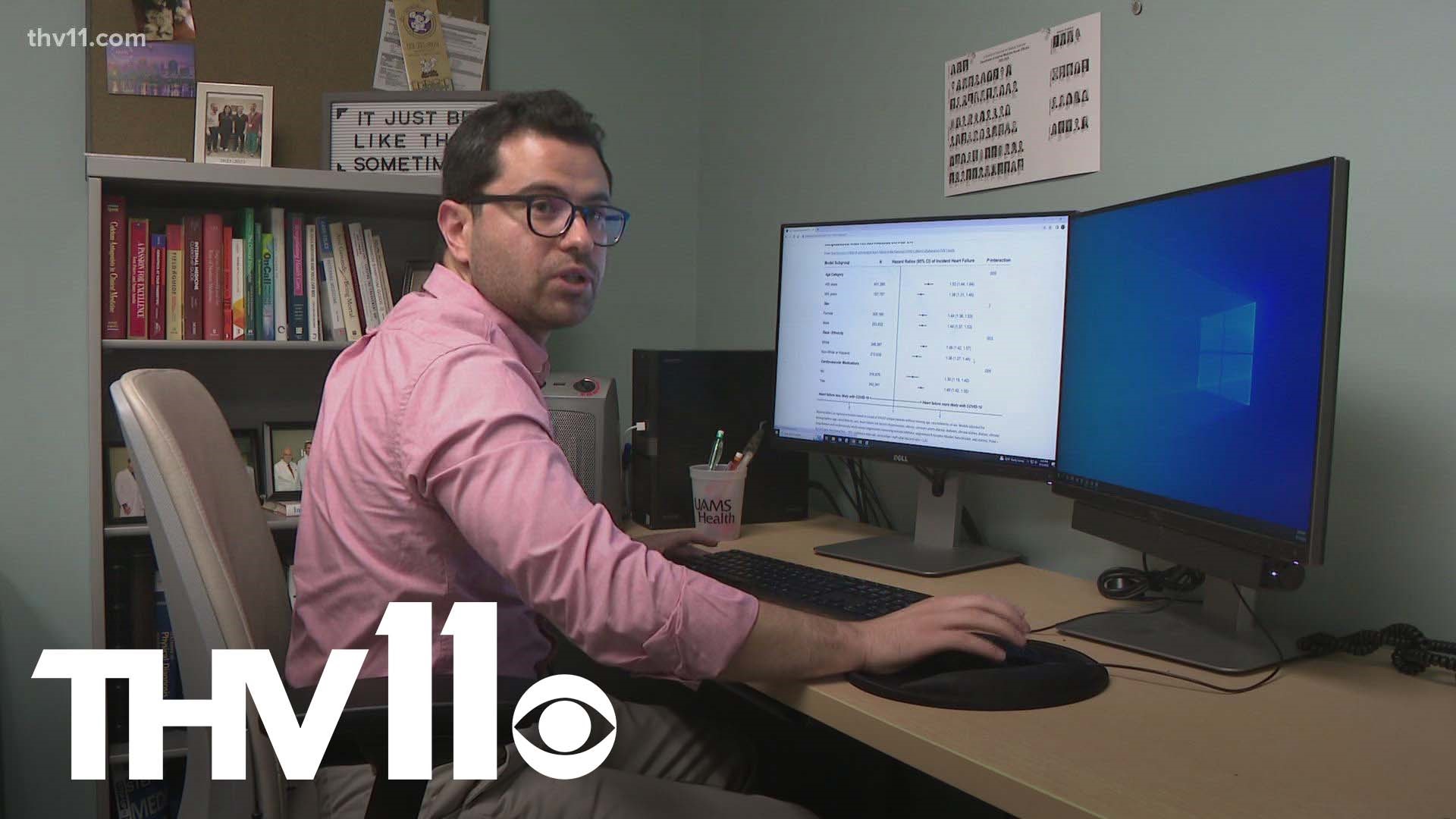LITTLE ROCK, Ark. — Every researcher dreams of making that one big discovery— for Dr. Husam Salah at UAMS, that discovery came quickly.
"I finished training in internal medicine residency just this June," Dr. Salah said.
The Chief Resident in the Department of Medicine is part of a team focused on just one thing— your heart, and how COVID-19 can affect it.
"Our study was really, it was the first nationally representative study that included a nationally representative sample," he explained.
Their research found a jump in heart failure among people who have had COVID-19. It wasn't a small jump, either.
"Concerned, but not surprised," Dr. Salah said.
"All different age groups, sex, races had an increased risk," Dr. Salah said, showing the data on his computer screen. "This is a really concerning trend."
Previously hospitalized patients under 65 had a 53% higher risk of heart failure, and those over 65 had a 38% higher risk.
"White patients had a higher risk of having heart failure compared to non-white patients," Dr. Salah said.
Working through the nearly 600,000 patient files took some time, but Dr. Salah explained that the dots were there, they just needed to be connected.
Just like the patient files, it's taken researchers time to analyze the connection between heart failure and the subvariants of COVID-19.
"Our group is trying to see how we can address that," Dr. Salah said. "We could not determine the variants and their individual association with the heart failure."
But Dr. Salah's work isn't done yet— in fact, he's just getting started. After a major discovery comes the need to spread awareness.
"You have it, and then once you recover from it, you don't think about the long-term complications," he said.
It's a message that he hopes people won't ignore.
"We all know that the vaccine might not prevent the infection completely, but at least decrease the severity of the infection," Dr. Salah said. "And this might decrease the risk of having cardiac complications, including heart failure."

